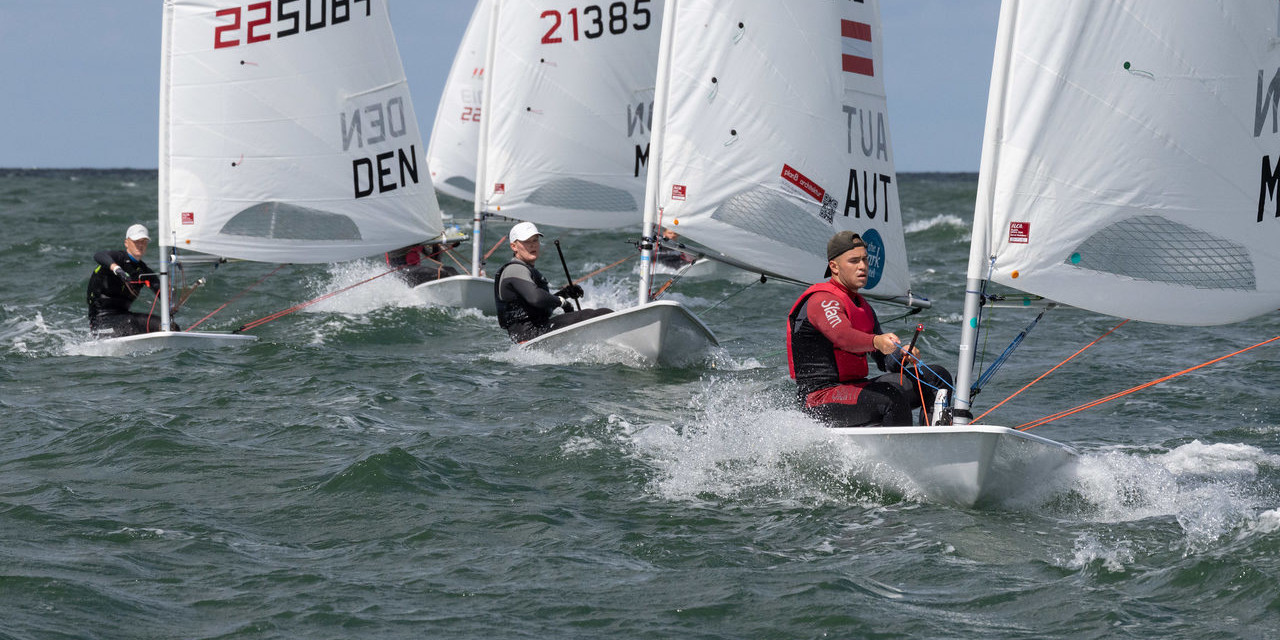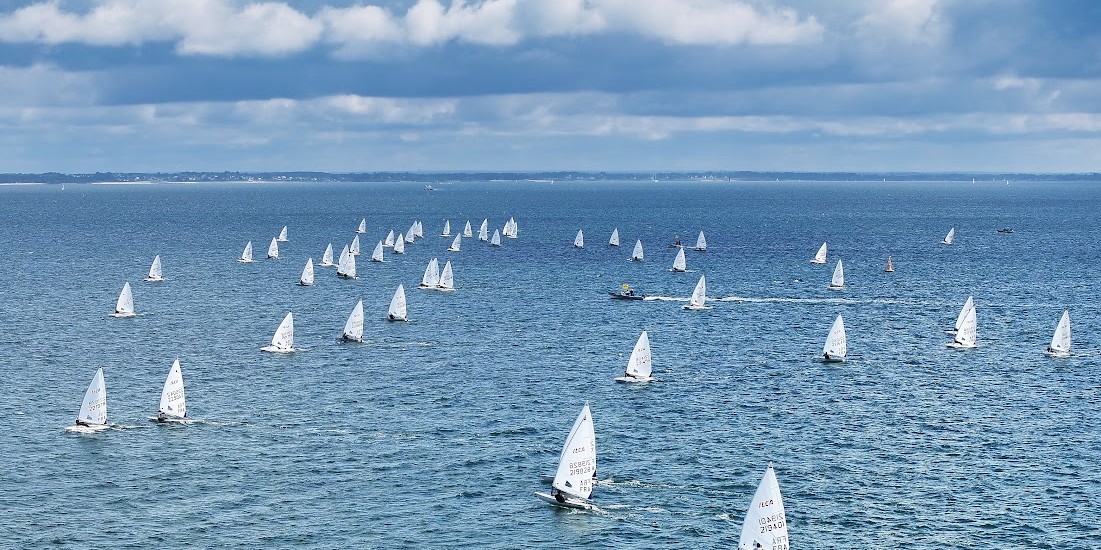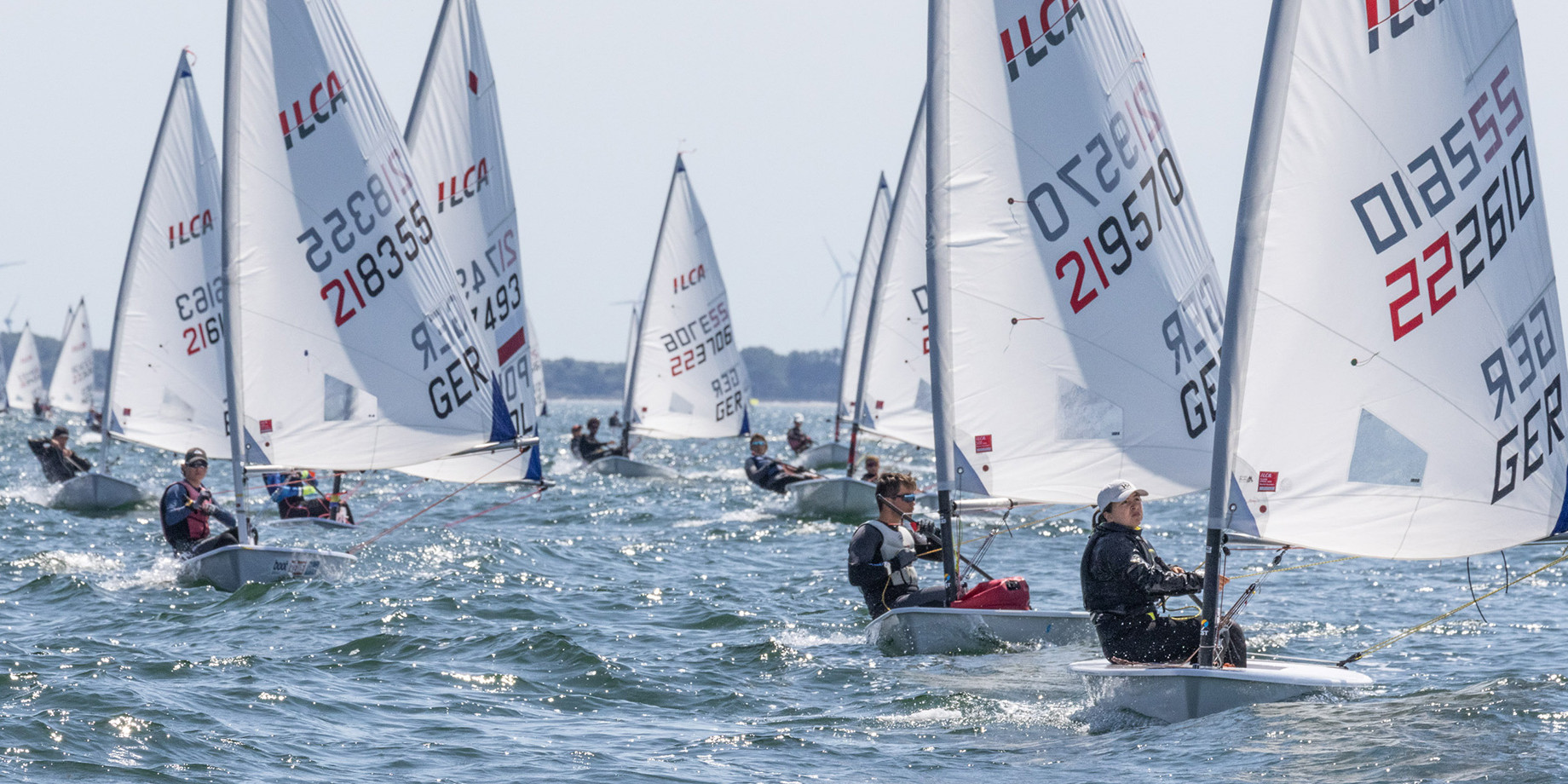15th Business Symposium | Thursday 23rd February 2023
An annual gathering for the yachting industry, the La Belle Classe Superyachts Business Symposium organised by Yacht Club de Monaco in the form of a dinner-debate, has become a fixture on calendars as an opportunity to take stock of the current situation, issues and challenges for the sector.
Organised under the aegis of the Monaco Capital of Advanced Yachting approach it federates key players across the supply chain, including owners and captains of superyachts. The theme for this 15th edition was yachting’s image and importance of keeping it positive towards an industry which, at a time when all eyes are on calculating the carbon footprint, is leveraging eco-performance alternatives to progress an energy transition.
“The Yacht Club de Monaco’s unique and neutral position enables it to bring those involved across the industry together to analyse the situation and propose concrete solutions. You all coming here this evening reflects everyone’s involvement which is essential if we are going to shift the goal posts,” began Bernard d’Alessandri, YCM General Secretary and President of the Cluster Yachting Monaco.
How is the industry perceived?
While the yachting market is thriving with order books full, the issue of sustainability is on the minds of public opinion and the industry. “The number of yachts under construction grew by 7% in 2023 and right now there are 648 yachts over 30m under construction. The shipyards have full order books and some shipyards have already sold yachts for delivery in 2028,’’ said Merjin de Waard, Founder of SuperYacht Times & Board member of the Superyacht Life Foundation.
To clarify: “New yacht sales dropped 29% in 2022 compared to 2021, however 2022 was still the second-best year (after 2021) of the last ten years with 221 new yacht sales. We should add that 2021 was very unusual, as there was a strong demand from buyers after the Covid-19 pandemic and at the same time a lot of availability of new yachts. As an example, in 2021 35% of new yachts under construction were for sale, while today it is only 19%”.
How is rising inflation and increased energy costs changing the yacht market?
According to Michael Breman, Sales Director at Lürssen Yachts, “The more expensive things get, the more cautious consumers become. What we are noticing today is that many are waiting. They are interested but slow the pace when it comes to making decisions as the market is uncertain in this global context”. A trend confirmed by Espen Oeino, designer and naval architect whose firm has also seen a fall in activity compared to last year, adding “I think we are going to have to deal with a drop in enthusiasm for superyachts over the next few months, even years”.
The general opinion is that the market is uncertain due to a combination of crises including an unstable economic context, soaring prices for materials and energy, higher interest rates and many geopolitical unknowns.
Given tighter environmental regulations and growing international awareness of ecology issues, all sectors are affected and must change their behaviour. It was noted that the perception of yachting is a tad biased due to media coverage of its eco-obligations, with 71% of 1,200 yacht specialist publications published in 2022 reporting negative feelings towards the sector.
For experts and observers, the superyacht industry faces an existential crisis. According to Captain Nigel Marrison, Founder of Blue ESG, “When we talk about the reputation of superyachts today, we are talking about a licence to operate. To maintain it we need an action plan to achieve specific environmental, social and governance objectives”. The idea is to support the industry as it improves performance and reduces its environmental impact.
“The ESG [Environment, Social, Governance] strategy promotes commitment and action towards decarbonisation and can help the superyacht industry meet the growing compliance demands of banks, insurers and legislators that is increasingly driving the licence to operate”.
“Even though the yachting industry has a small impact on the planet in terms of CO2 emissions, these players have a big responsibility, particularly in image terms; they must be drivers and leaders to progress the technologies and habits of tomorrow to raise public awareness and make the maritime world more eco-friendly,” argued Nicolas Mior, Manager of Jutheau Husson Yachting.
“Most often it is a question of evaluating the cost of technologies likely to reduce emissions, which are often costly, and often calculated solely on the basis of operational benefits. It doesn’t always lead to a return on investment in a sufficiently short time,” noted Tim Morley, Founder of Morley Yachts.
“Today we really need to work together,” said Natalie Quévert from YCM in charge of the SEA Index, a benchmark system to assess superyacht CO2 emissions launched by YCM in 2020. “The issue is so significant we can’t act alone”.
Comments relayed by Matteo Brisacq, Founder of Neoyot: “From my perspective at 21, I want to bring the vision that young people my age experience daily when faced with this problem. Seeing what’s happening is good, becoming aware is better, finding solutions is essential but the most important thing is to act. That’s why mentalities must change and be open to new ideas. Unfortunately some industry players here today don’t realise what they are leaving us with. Only by combining our elders’ experience with the next generation’s innovative ideas can we make the yachting skies blue again!”
What options for the industry?
“We have two situations: future vessels for which we have new technologies under development and the problem of existing vessels. What can we do with them, given that the cost to convert them to another mode of propulsion, with methanol or hydrogen, is prohibitive. In the shipping industry, the lifespan of a conventional yacht is about 20 years which is not the case for superyachts. They can go up to 25, even 50 years. The problem with all this is that it increases the size of our fleet and therefore the emissions,” explained Captain Malcolm Jacotine.
The yachting industry wants to protect the sea, a trend which, added to new standards, is pushing boat builders and engineers to rethink future newbuilds towards more efficient propulsion systems such as hybrids and zero-waste construction techniques. If actions taken today fail, then the reputation of the whole industry will suffer, as well as individual vessels and their owners. Drive the transformation; stay ahead of emissions and sustainability regulations; improve performance and efficiency; and avoid being passive to mitigate the misperception of the industry, are avenues to pursue to achieve the Superyacht Decarbonisation Programme Net Zero 2050. “Ask yourself if your yacht will make the world a better place? And together let’s make 2023 the year of transition for the superyacht industry,” concluded Nigel Marrison.
While the majority of boats may still be powered by diesel today, the future for superyachts has a whole other vision. A range of solutions are envisaged to achieve a carbon-free future. “We anticipate a future of hybrid propulsion methods in line with environmental issues,” commented Dr Daniel Chatterjee, Director Sustainability Technology Strategy & Regulatory Affairs, Rolls-Royce. “Are the concepts of sustainability and superyachts contradictory? Perhaps, but there is a dynamic and a technology that make them the precursors of more eco-aware shipping”. Yachts emit 5 million tonnes of CO2 which represents 0.3% of the maritime sector’s emissions. “It’s not much but it’s already something”.
By 2030 expect methanol/electricity associations, while CO2 neutral fuels like methanol could be a solution for the shipping sector. “Yachts must be the drivers of green innovation by developing truly sustainable footprints by optimising energy use and efficiency, researching sustainable fuel options and adopting new technologies. Methanol has the potential to become a major fuel source for the maritime industry with forecasts predicting that by 2050, 40% of its fuel will be methanol,” added Daniel Chatterjee.
Methanol is also of interest for the superyacht sector due to ease of transportation and its current availability. “It’s essential yachting become proactive,” noted Roberto Giorgi, Honorary Chairman of Fraser Yachts. “We have the same objectives and I hope Monaco becomes the leader in the luxury yacht field. With the restrictions that exist today, we have to work even harder and be ready to spend money”.
“The key is to manage energy and its production,” stressed Nicolas Bouchet, design engineer at AYRO, specialised in maritime engineering. “Replacing fuel with electricity from a clean source and storing it offers many advantages: safety, space-saving, self-sufficiency, independent production, optimised navigation, etc.” Constructing a sailing yacht is one innovative solution as climate change gathers momentum. The advantage of wind propulsion is that wind is clean, free and universal. Its usage is more than promising for reducing the environmental impact of ships as a solution that “transforms wind energy into a driving force”. Used for millennia to power ships, wind is proving effective in addition to engine power, “for example, this solution was chosen for the Energy Observer laboratory boat which covered over 40,000 nautical miles. Wind power represented 75% of propulsion”.
“However, we mustn’t forget that if we are to give yachting a positive image, we must demonstrate that it is not too daunting,” said Captain Sean Meagher (M/Y Latitude) and Captains’ Club member. “We have the potential to change the face of the industry, to show we are not all about excess and frivolity but an industry of innovation, altruism and passion. To do that we need to tell the stories of vessels and their owners that do make the world a better place. And I would like to thank YCM for this initiative that has brought us together every year for the last 15 editions. It is the only place that gathers together owners and all us professionals to consider our future”.
Bernard d’Alessandri concluded: “As the saying goes, “When you love something, you don’t count the cost”. For sure, adopting an environmental approach by exploiting technology has a cost. This is already the case in the automotive industry where electric cars are more expensive than fossil fuel ones. It is time to realise this, to accelerate our transformation and achieve the zero-emissions objective in terms of propulsion”.
Following its La Belle Classe Superyachts Business Symposium, YCM prepares for the 6th Monaco Ocean Week (20-26 March) organised by Prince Albert II of Monaco Foundation with the Monaco Oceanographic Institute, Monaco Scientific Centre and Yacht Club de Monaco. As tradition dictates, YCM is in charge of the yachting element on Thursday 23rd March. A full-day programme kicks off with the 12th La Belle Classe Superyachts Environmental Symposium focused this year on the Monaco Energy Boat Challenge which will celebrate its 10th anniversary (3-8 July), followed by the 27th Captains’ Forum and concluding with the 3rd YCM Explorer Awards by La Belle Classe Superyachts.
At the same time, the 1st Monaco Smart Yacht Rendezvous will be launched, organised by M3 (Monaco Marina Management) following the success of the first two editions of the Monaco Smart & Sustainable Marina Rendezvous (next one 24-25 September 2023). It’s aimed at all those involved in the yachting industry (yachts over 24m) and innovation companies keen to provide a collective response to climate challenges. The Rendezvous puts the spotlight on young companies to improve production methods by bringing together an ecosystem of key players whose partnerships will help exploit innovative technologies towards sustainability and respect for biodiversity.
All the above are being held under the aegis of the collective Monaco, Capital of Advanced Yachting umbrella that federates key players in the industry.
A few statistics (source SuperYacht Times):
40%: Percentage of methanol in the shipping industry by 2050
0.3%: Percentage of superyacht CO2 emissions in the shipping industry
5,553: number of superyachts in operation in 2023
Dernières publications
15 July 2024
Celebration of youth
Celebration of youth Youth Sailing World Championships – Riva del Garda 15-19 July 2024 The…
14 July 2024
Monegasques out in force
Monegasques out in force French Open - Quiberon 11-14 July Laser sailors from Yacht Club de…
14 July 2024
Consistency on every start
Consistency on every start ILCA 7 - EurILCA Europa Cup GER – Warnemünde 6-14 July Consistency was…



